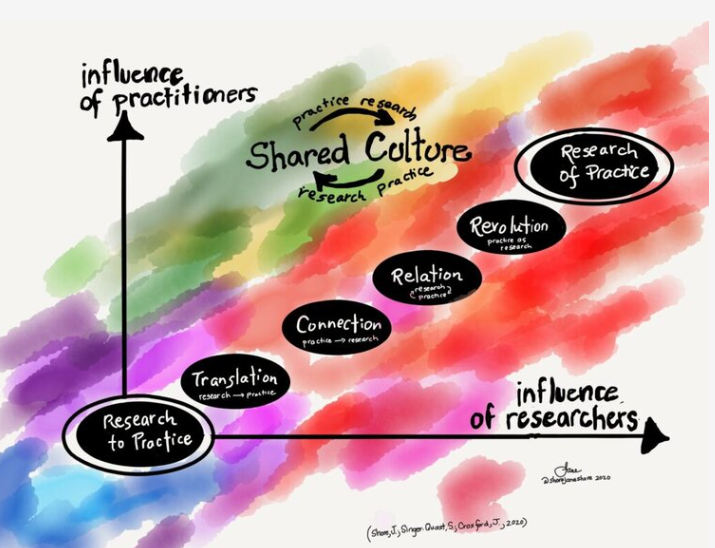Student Perspectives: The impact of interdisciplinary, collaborative research opportunities on student development
As a part of our focus on research that crosses boundaries, we are featuring the Bass Connections program at Duke University where Laura Howes serves as Director.
Bass Connections students and faculty test a solar device
By Laura Howes
Many students today have a natural inclination towards interdisciplinary research, often driven by the desire to apply budding knowledge and skills to address a big issue of personal concern. Each year, the Bass Connections program at Duke University provides nearly 1,000 undergraduate and graduate/professional students many options to engage in a sustained and immersive interdisciplinary research project.
Students cite numerous motivations to participate in Bass Connections. They wish to gain research experience, to be part of a multi-disciplinary team, to be part of something innovative, and to work closely with faculty. While they will likely gain these experiences, we have found that students accrue other benefits as well.
A recent survey of program alumni revealed that undergraduate alumni attribute the program with developing their ability to think critically, demonstrate leadership on a team, and conduct meaningful research. Meanwhile, graduate/professional student alumni attributed the program with developing their capacity to work with external stakeholders/clients, organize and manage projects, and demonstrate leadership on a team.
Rank of top skills alumni developed through the program
Perhaps of even greater significance, the program shapes intellectual trajectories and career discernment. Many students report that the program enabled them to find an academic passion and explore it deeply and across disciplinary boundaries. For scores of students who have published reflections on our website or offered commentary in free response survey answers, the experience on a research team has informed students’ sense of their career goals and interests after graduation. Consider the following sampling of quotes from our alumni survey.
“The project cemented my interest in science policy and led me to pursue it as a career path. Now, I'm a AAAS fellow in Congress.”
“Bass Connections gave me a really early appreciation for applied research – something I've carried through my career of community-engaged LGBTQ public health research and now into my graduate studies in public policy.”
“It was life-changing in that it opened my eyes up to health disparities in a way I had never learned or cared much about before. This was a large part of my motivation to go to medical school, and is a daily part of our conversations in the field now.”
For further snapshots of the ways interdisciplinary, applied research projects shape the experience of undergraduate and graduate and professional students, we have cultivated a sub-set of student reflections below for further reading.
Kathleen Burns, Ph.D. in English
“My advice is to embrace the opportunity even if the project doesn’t overtly align with your current research. If anything, my year learning about ozone depletion has helped shape the topic of my dissertation project more than any other single source at Duke. It revolutionized the way I think about risk, weather, climate – even air conditioning!”
Maria Paz Rios, Undergraduate Math and History Major ‘21
“This has been by far the most rewarding experience I've had at Duke because it has provided me with a bridge between the classroom and the real world. It has also provided me with the most rewarding leadership opportunity I've had.”
Ashton Merck, Ph.D. in History ‘19
“Steady progress in a doctoral program and the pursuit of collaborative, interdisciplinary research projects need not be mutually exclusive. For me, work on collaborative projects early in my graduate career offered invaluable insights into my developing interests, my strengths, and my weaknesses, all as I was figuring out my long-term aspirations as a scholar and as a historian. The skills and experiences I gained from these projects will not only help me better navigate postgraduate life, but will positively affect my upcoming dissertation research and writing.”
Elaijah Lapay, Undergraduate student ‘24
“My Bass Connections project team has been the most personally impactful and academically stimulating experience of my time so far, and I will continue to remember the work and collaboration our team has done for the rest of my life.”
Trey Sinyard, M.D. in Medicine and Master of Business Administration ‘17
“The most exciting thing about the Bass Connections project that I’m on is that it has real potential to make an impact on a very important issue. Most of the time in academia, you’re working on topics that are theoretical or purely academic in nature. The North Carolina Medicaid Project puts us in a position to impact real policy that’s going to affect people this year and in the years to come in the state of North Carolina. I have patients that would be impacted if we were successful in changing how North Carolina Medicaid is financed and structured.”
Sophie Hurewitz, Undergraduate Neuroscience Major ‘22
“My involvement with Bass Connections has inspired me to pursue my interests in child and family policy, health policy and educational policy alongside an MD degree.”
More Methodspace posts about interdisciplinary research












The Director and Assistant Director of the Bass Connections program at Duke University share lessons learned and open access resources for team success in interdisciplinary collaborative research.